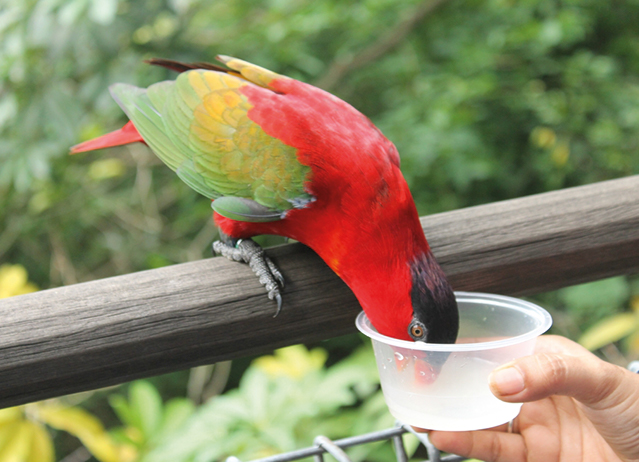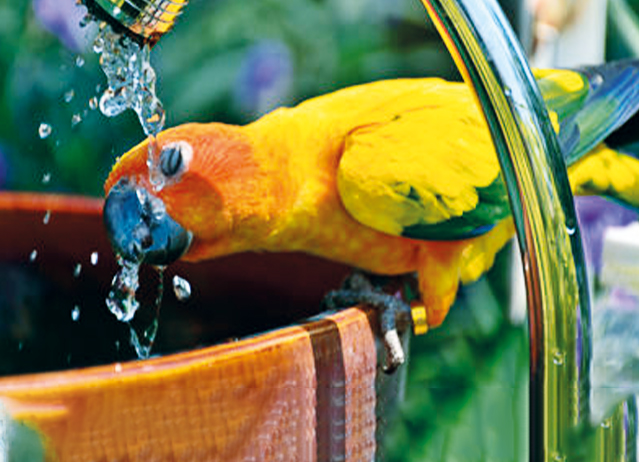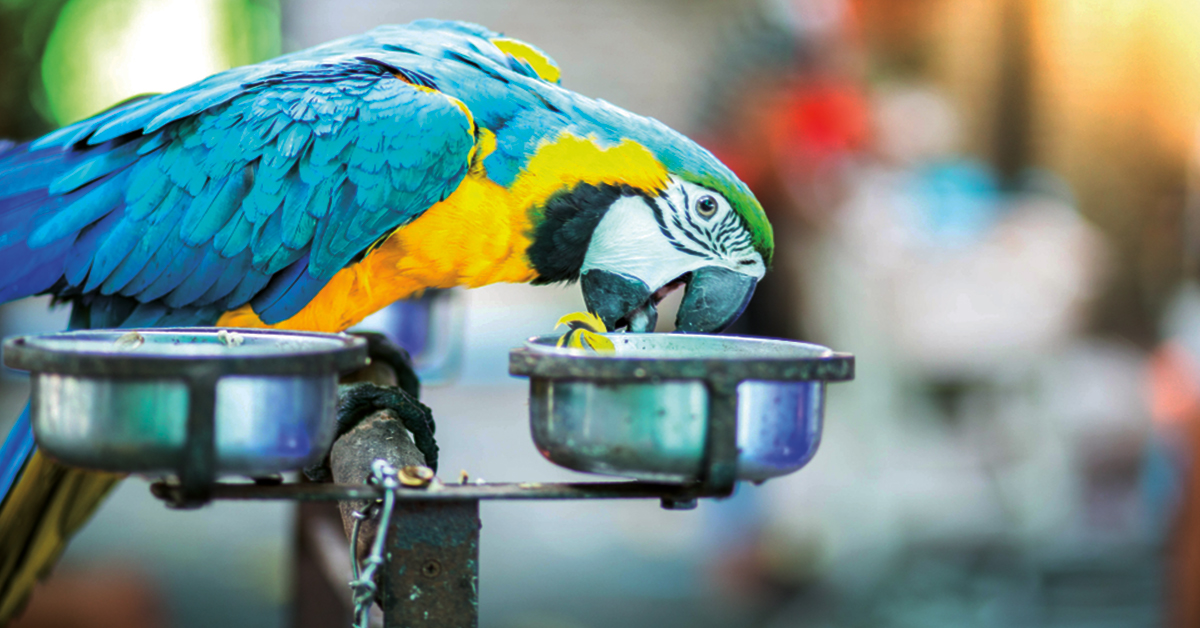The summers are in full swing, and temperatures are soaring high. Due to this, the entire world of pet owners is concerned about their furry and feathered friends and the adverse impact of extreme weather might have on these lovable friends. Parrots, in particular, fall under one such group which tends to be small in size and rather intolerant of high temperatures. Like all other pets, they too need to have plenty of fresh, cool water available at all times, as it is essential for maintaining their general health and also aids digestion and regulates body temperature. However, how much water does your feathered friend need during the summer? Can parrots get dehydrated and can you prevent it? Here is what you should know.
Can a Parrot Get Dehydrated?
Like all other living creatures, parrots also need water, and with a lack of it, they can get dehydrated. Dehydration creeps in when a bird loses more water than it takes in, causing an imbalance in their body’s water levels. There are so many reasons why this can happen. The most common cause is insufficient water intake, excessive heat, sickness, or improper dieting. When calculating the amount of water to feed your bird, associate such with the size and weight: for example, a majestic Moluccan Cockatoo will definitively need more water than a cute little Budgie. So generally, ensure they get at least 5 percent of their body weight in water per day.
Dehydration can prove serious to the health of birds. It affects kidney function, digestion, and general vitality. It is therefore very important to always offer them a source of fresh water and check on dehydrative trends.

Signs of Dehydration in Parrots/Dehydreated Parrot
Any owner should know how to identify the symptoms of dehydration in parrots. This knowledge can be vital in keeping them healthy and allowing them to act quickly. Some of the common signs include:
Sunken Eyes:
Sunken or dull eyes are some of the more obvious indications of dehydration in a parrot. This should be attended to immediately.
Lethargy:
A dehydrated parrot can become lethargic or less active. He may demonstrate a complete lack of interest in playing or relating to his surrounding environment like he normally would do.
Reduced appetite:
The lack of water intake causes a loss of appetite, as clear from the fact that dehydration may cause digestive problems and general discomfort.
Dry Skin and Beak:
A dehydrated parrot develops dry or flaky skin and a dry beak. The skin can also become inelastic with a brittle beak.
Weight loss:
Over time, this may lead to the visible loss of weight in birds resulting from dehydration, whereby the bird’s body tries to function normally.
Sticky mucous membranes:
It can cause stickiness or dryness inside the parrot’s beak.
Rapid breathing:
Dehydrated parrots may pant or breathe quite rapidly in an attempt to control their body temperature.

Preventing and Treating Dehydration in Parrots
Knowing what can dehydrate parrots in the first place would be equally important. That way, you’ll also be able to avoid it from happening. Number one on the list is low water supply. In case the water source of a parrot cannot be accessed or if it is always empty, they will not drink enough water. Be sure that the waterer of your birds is clean always and easy to use, as well as of parrot-safe material.
Also, remember that parrots are susceptible to heat, and with the temperatures, they lose water very fast through evaporative and increased breathing. If you want to bring more ventilation to your home, try a good fan on a low setting to keep them cooling down more efficiently. Needless to say, this shouldn’t be pointed at your bird—just direct it near them but not at them.
Keep in mind another aspect: stress. Stressful conditions, like changes in the environment and loud noises, may increase the water lost and decrease the water taken in. Try to make a routine you will follow and provide a quiet, peaceful space for your avian bestie – stress can cause different problems in parrots.
It should go without saying that prompt veterinary care is very important if you ever notice any of these symptoms. Minutes count if he becomes dehydrated, so get him to an experienced avian veterinarian as quickly as possible!

